In the remote highlands of ancient Ethiopia, a tale was born. A tale that would percolate through the annals of history and fuel the minds and hearts of millions around the globe. This is the story of Kaldi, a humble goat herder, whose serendipitous discovery forever altered the trajectory of human society and culture.
In the quiet solitude of his pastoral life, Kaldi noticed an unusual exuberance in his goats after they nibbled on the red berries of a certain bush. Intrigued, he tasted the berries himself and was immediately invigorated. Unbeknownst to Kaldi, he had stumbled upon what we now know and love as coffee.
This compelling narrative of Kaldi and his dancing goats has seeped into the very heart of coffee culture, percolating its way from this ancient Ethiopian plateau to every corner of the globe. As we sip our morning brew, few of us realize the extraordinary journey that coffee has taken over the centuries, or the depth of the cultural, economic, and social impact it has had on our world.
In this article, we will explore the captivating story of Kaldi, delve into the rich and aromatic history of coffee, and discover how this potent brew has been a quiet yet powerful force shaping societies. We’ll trace the journey of coffee from its Ethiopian roots, through the grand coffee houses of the Ottoman Empire and Europe, to the bustling coffee shops that dot our city streets today.
So grab a cup of your favorite blend, sit back, and join us on this fascinating journey through time and across continents, as we uncover how a humble goat herder named Kaldi and his energetic goats sparked a global love affair with coffee that continues to brew strong.
Story of Kaldi the Goat Herder: Key Takeaway
- Origin of Coffee: The story of Kaldi, an Ethiopian goat herder, marks the legendary beginning of coffee consumption. His discovery of the energizing effects of coffee berries led to the widespread use of coffee as a beverage.
- Global Influence: From its humble beginnings in Ethiopia, coffee spread across the globe, influencing various aspects of society, culture, economics, and even intellectual discourse. Its influence is seen from the traditional coffee houses in the Middle East to the modern specialty coffee shops worldwide.
- Socio-Cultural Impact: Coffee plays a significant role in social rituals, fostering community, and intellectual discussion. It has also influenced various forms of cultural expression, from literature to art and media, demonstrating its deep-seated influence in our societies and cultures.
- Modern Coffee Culture: Today’s coffee culture, a legacy of Kaldi, is a dynamic fusion of tradition and innovation, with an increasing emphasis on quality, craftsmanship, and sustainability. It reflects a growing appreciation for the art and science of coffee preparation and a commitment to ethical sourcing and sustainability.
- Preserving the Legend: The story of Kaldi continues to resonate within the modern coffee industry, influencing everything from festivals to branding strategies. His story serves as a symbol of coffee’s timeless appeal, authenticity, and enduring connection to culture, community, and the human spirit.
The Legend of Kaldi: An Ethiopian Tale
The lush green highlands of Ethiopia are not just stunningly beautiful, they also cradle a tale that has reverberated through time and space. This story, steeped in mystery and lore, is about a humble goat herder named Kaldi.
Kaldi: The Man and the Myth
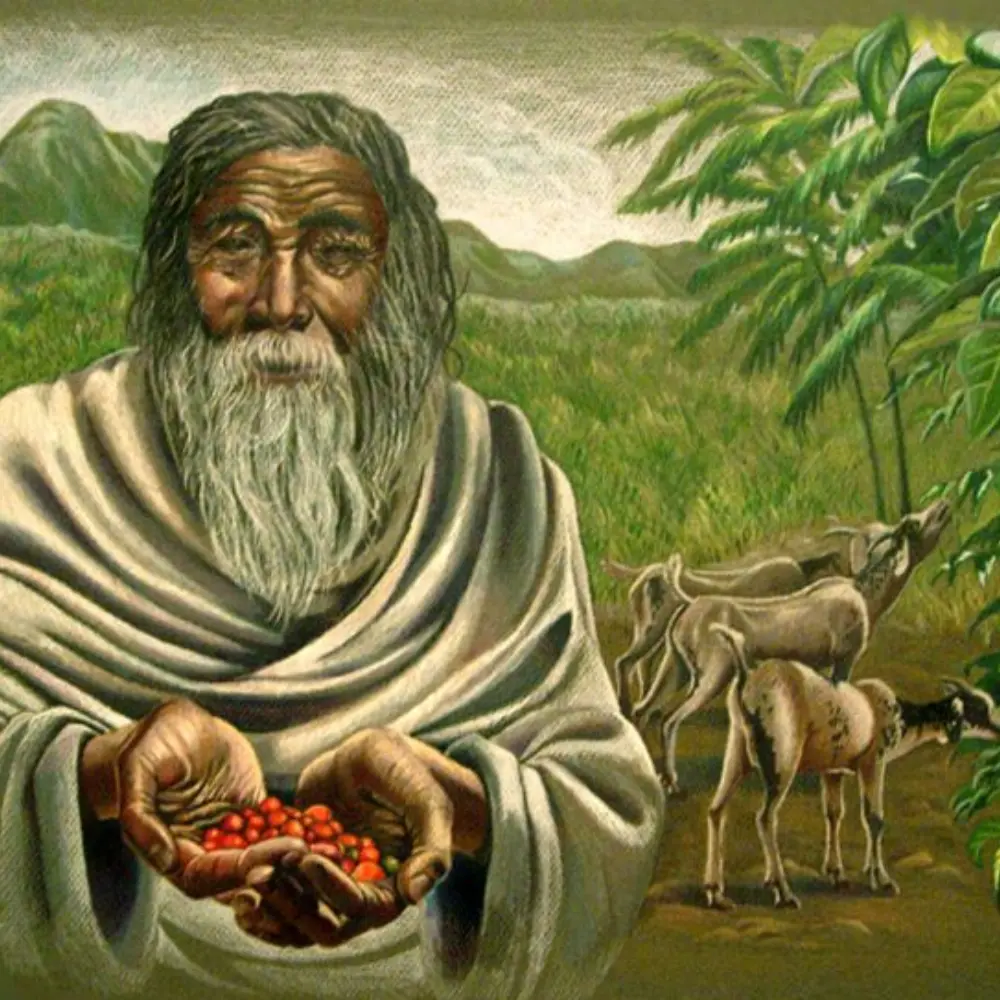
Kaldi, as the legend goes, was an ordinary goat herder who lived in the highlands of Ethiopia during the 9th century. The details of his life are shrouded in mystery, but what he is most remembered for is his extraordinary discovery. Kaldi, in essence, is the protagonist of an enduring narrative, a symbol that represents the dawn of the coffee age. He embodies the simple, rustic life that bore the fruit of one of the world’s most coveted beverages. (1)
The Serendipitous Discovery: Dancing Goats and Red Berries
One day, while tending to his goats, Kaldi noticed a peculiar phenomenon. His goats, upon eating the red berries from a certain bush, displayed an unusual burst of energy, prancing around as if in a dance. Intrigued, Kaldi decided to taste these berries himself. The effect was immediate: a surge of vitality and alertness, a feeling he had never experienced before.
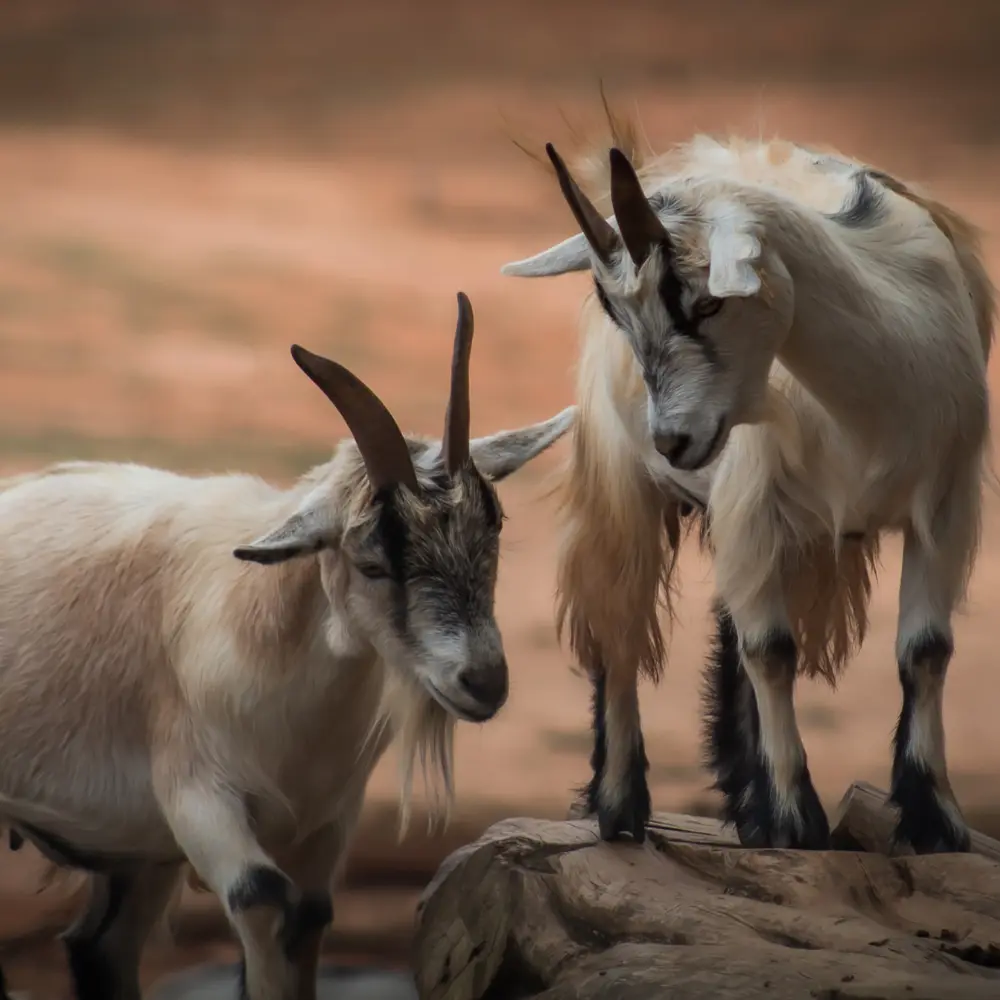
Soon after, he shared his discovery with a local monk who, intrigued by Kaldi’s tale, decided to make a drink with these berries. The monk found that this brew helped him stay awake during his long evening prayers. The news of this invigorating drink began to spread, and before long, it reached the monasteries of the Middle East, setting the stage for coffee’s global journey.
From Legend to Cultural Heritage: Ethiopia’s Coffee Tradition
In Ethiopia, the legend of Kaldi is more than just a story—it’s a significant part of the nation’s cultural heritage. Coffee, known locally as ‘buna,’ is deeply ingrained in Ethiopian society and has been for centuries. Traditional coffee ceremonies, where coffee is prepared and served in a ritualistic manner, are a common sight in Ethiopian homes. These ceremonies, which can last for hours, are a testament to the country’s deep respect and reverence for coffee. (2)
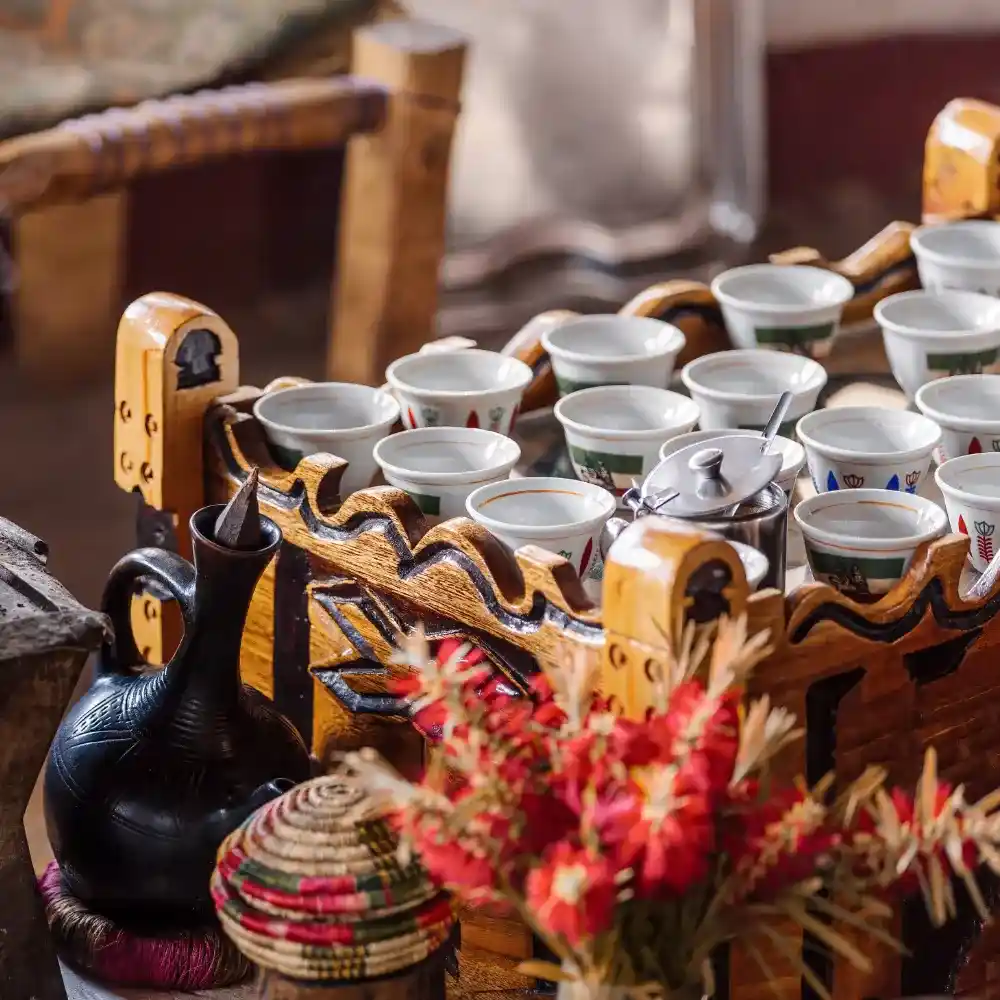
The legend of Kaldi, thus, is a testament to Ethiopia’s rich coffee culture. It serves as a timeless narrative that ties the past to the present, and the local to the global. As we sip our coffee, whether it’s in the comfort of our homes or a bustling café, we are partaking in a tradition that goes back centuries, to a humble goat herder and his dancing goats.
The Socio-Cultural Impact of Coffee
Coffee, beyond its caffeinated allure, has had a profound socio-cultural impact globally. Its role in shaping societies, rituals, art, literature, and more is vast, with its influence deeply entrenched in our daily lives and cultural expressions.
Coffee and Its Role in Rituals and Society
In various cultures, coffee plays a central role in social rituals and ceremonies. As mentioned before, in Ethiopia, the birthplace of coffee, the traditional Ethiopian coffee ceremony is a significant social event that fosters community and hospitality. It involves the careful roasting of the beans, brewing in a ‘jebena’ (a traditional clay pot), and serving in small cups, with the process often taking hours.
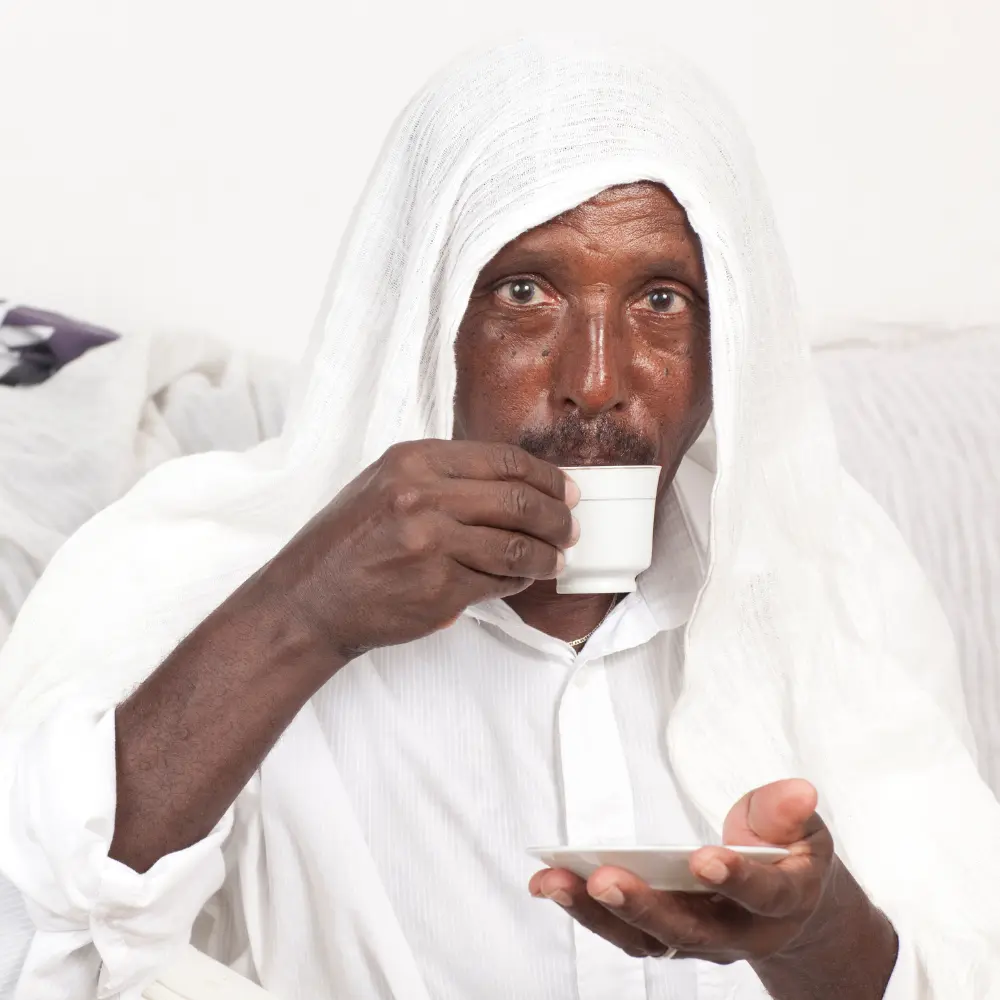
In the Middle East, coffee houses or ‘qahveh khaneh’ served as important social hubs, where men gathered to discuss politics, play chess, and share the news. In modern Western society, coffee breaks and ‘coffee catch-ups’ are integral parts of the social fabric, facilitating both professional and personal interactions.
The Art and Science of Coffee Preparation: From Traditional Methods to Modern Techniques
The preparation of coffee, much like its consumption, is steeped in tradition and ritual. Over time, it has evolved into a complex interplay of art and science. Traditional brewing methods, such as the Turkish ‘ibrik’, Ethiopian ‘jebena’, or the Italian ‘moka pot’, reflect cultural nuances and preferences.
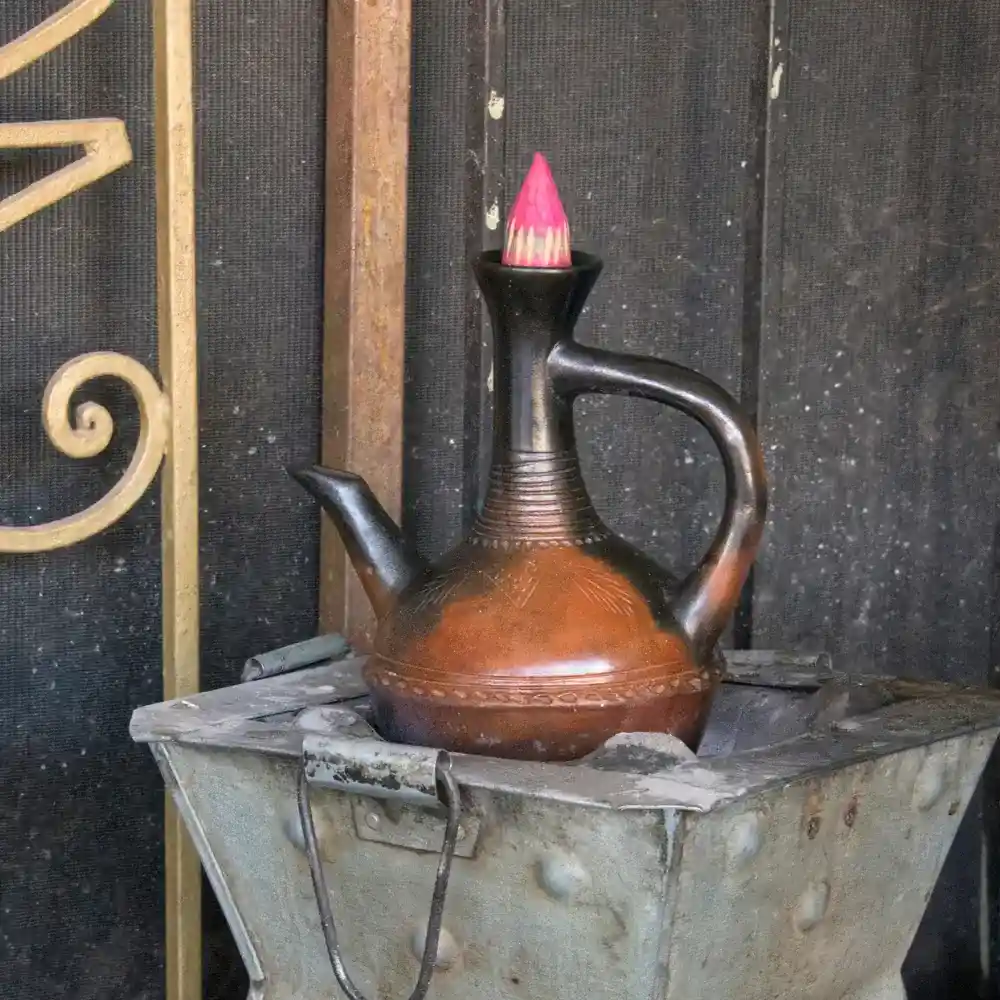
In recent years, modern brewing techniques have emerged, with baristas treating coffee making as an exact science. From precise grind sizes and water temperatures to innovative extraction methods, the art and science of coffee preparation have become a craft in itself, celebrated in competitions and revered in specialty coffee shops worldwide.
Coffee as a Symbol: Expressions in Art, Literature, and Media
Coffee has found its way into various forms of cultural expression. In literature, it has been a symbol of awakening, a companion to introspection, or a catalyst for social interaction. Famous coffee addicts, like Honore de Balzac and J.D. Salinger, have penned praises for the beverage, while in others, like Marcel Proust’s ‘In Search of Lost Time’, coffee triggers profound reflections.

In visual arts, coffee has been both a subject and a medium. Artists like Salvador Dali have used coffee symbolism in their work, while others use coffee as an actual medium to create ‘coffee art’. In media and cinema, coffee often serves as a prop that sets the mood, fuels dialogue, or develops character.
From its role in social rituals to its representation in cultural expressions, coffee’s impact extends far beyond its primary function as a beverage. It has permeated our societies and cultures, influencing how we live, connect, and create.
The Contemporary Coffee Culture: A Legacy of Kaldi
From the tale of Kaldi and his dancing goats, coffee culture has evolved and expanded, permeating every corner of the globe. Today’s contemporary coffee culture is a dynamic fusion of tradition and innovation, with an increasing emphasis on quality, craftsmanship, and sustainability.
The Evolution of Coffee Culture: From the Coffee House to the Coffee Shop
Coffee culture has evolved dramatically over the centuries. The traditional coffee houses of the Middle East and Europe were the precursors to today’s modern coffee shops. These establishments were not just places to enjoy a cup of coffee but were also social hubs where people gathered to converse, exchange ideas, and even conduct business.

Today’s coffee shops continue this tradition, serving as communal spaces that foster connection and creativity. However, they have also adapted to modern lifestyles and tastes. The rise of ‘third wave’ coffee shops, which emphasize high-quality, ethically sourced beans and skilled brewing techniques, reflects a growing appreciation for the craft of coffee making.
Specialty Coffee: The Rise of Artisanal Practices and Ethical Sourcing
Specialty coffee represents the pinnacle of coffee quality and craftsmanship. It involves every stage of the coffee process, from farming and harvesting to processing, roasting, and brewing. Specialty coffee places a high value on sustainability and ethical sourcing, with a focus on fair trade coffee practices and environmental stewardship.
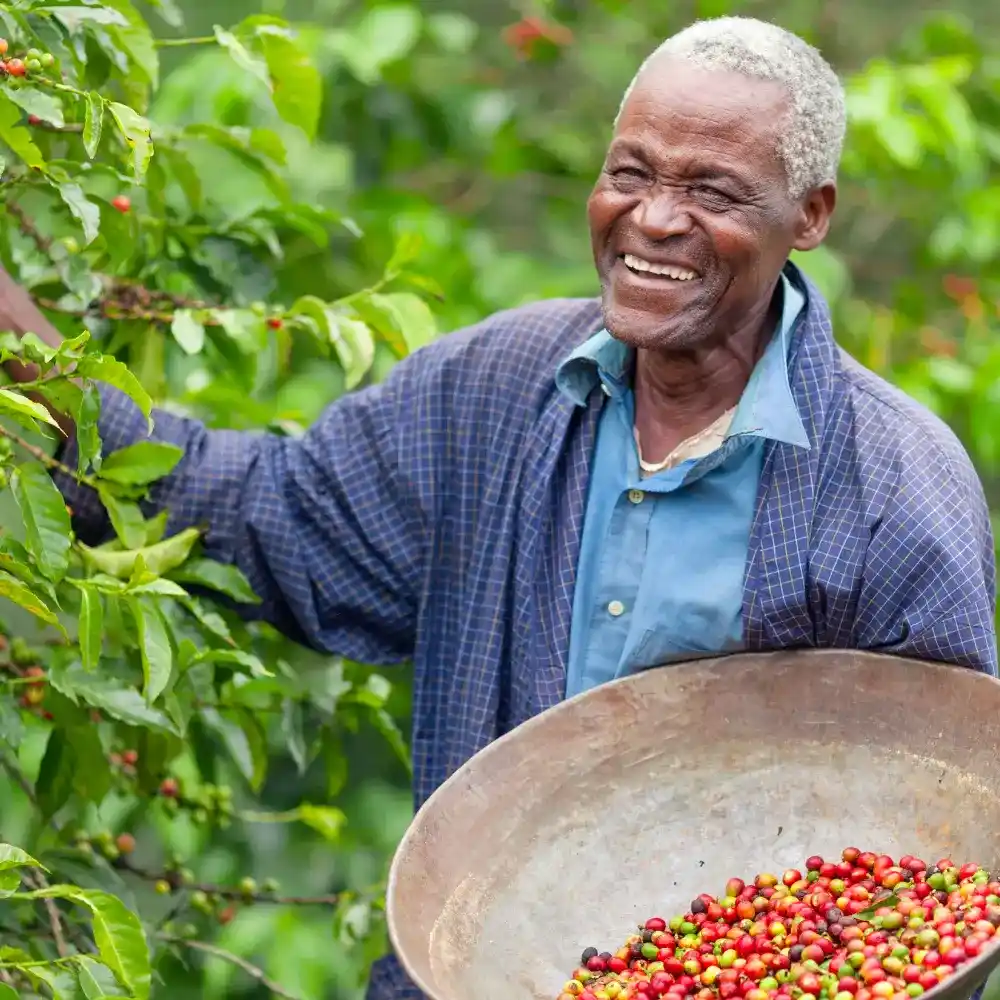
This movement has not only elevated the coffee-drinking experience but has also made a significant impact on coffee-producing regions. By supporting small-scale farmers and sustainable farming practices, specialty coffee is contributing to the economic and environmental sustainability of these communities.
Coffee Innovations: New Trends and Future Prospects
As coffee culture continues to evolve, so too does the innovation surrounding it. New trends, from cold brew and nitro coffee to plant-based coffee alternatives, demonstrate the constant reinvention of this beloved beverage.

Technology is also playing a significant role in shaping the future of coffee. From smart coffee machines that can brew the perfect cup at the touch of a button to coffee traceability apps that allow consumers to trace their coffee’s journey from farm to cup, these innovations are enhancing the coffee experience and promoting transparency and sustainability in the industry.
The legacy of Kaldi lives on in the vibrant, dynamic world of contemporary coffee culture. From its humble beginnings in the Ethiopian highlands, coffee continues to inspire innovation, foster community, and fuel our daily lives. It’s a testament to the enduring power and allure of this simple yet extraordinary beverage.
Preserving the Legend: Kaldi’s Influence in Today’s Coffee Industry
The legend of Kaldi, the Ethiopian goat herder, continues to resonate within the modern coffee industry. His story is celebrated in various ways and remains a powerful symbol of coffee’s origins, influencing everything from festivals to branding strategies.
Celebrating Kaldi: Festivals, Rituals, and Tributes
Across the globe, Kaldi’s discovery is commemorated in various ways. In Ethiopia, the birthplace of coffee, Kaldi’s tale is often woven into the traditional coffee ceremony, a significant social event that involves the ritualistic preparation and serving of coffee.
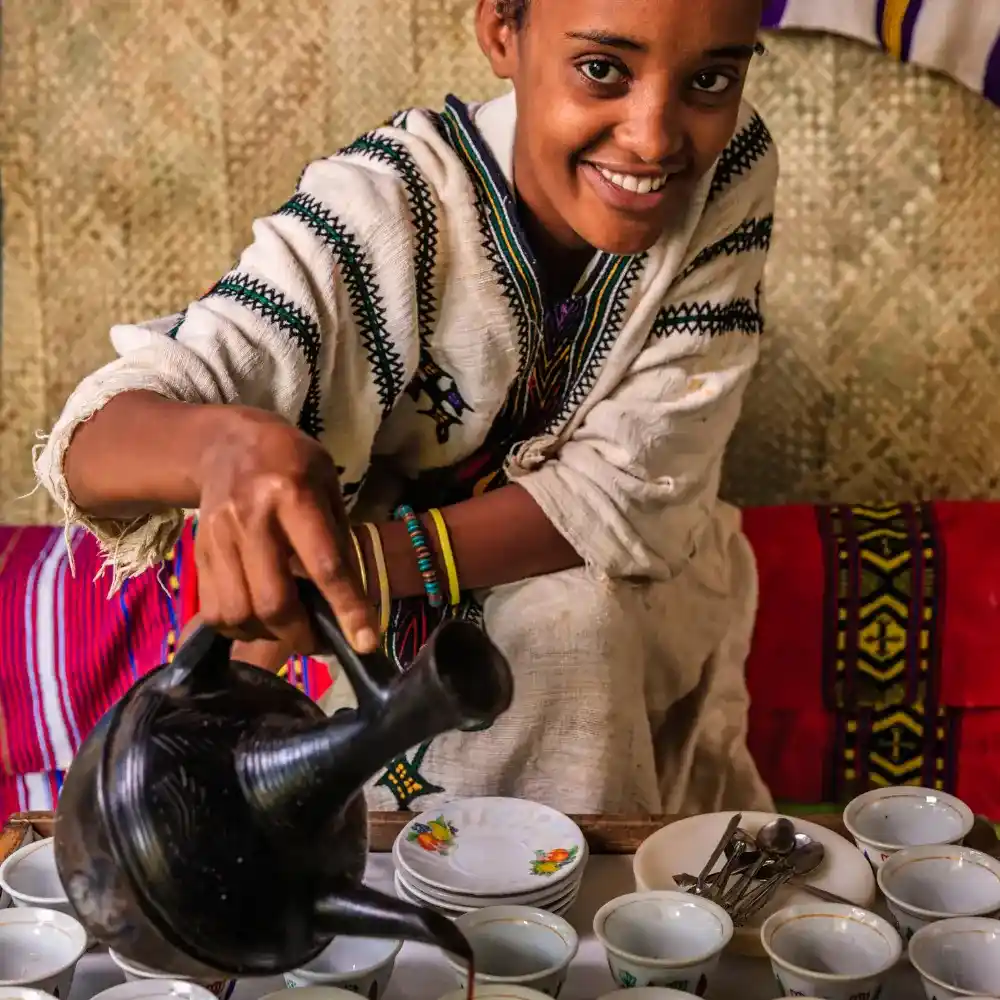
Festivals like the Kaldi Coffee Festival in South Korea and the Coffee Ceremony in Ethiopia pay tribute to Kaldi’s legend, celebrating the rich history and culture of coffee. These events often include coffee tastings, barista competitions, and educational sessions about the coffee’s journey from bean to cup.
From Kaldi to Barista: The Evolution of the Coffee Expert
The role of the coffee expert has evolved significantly since Kaldi’s time. Today’s baristas are skilled artisans who combine technical knowledge with craftsmanship to brew the perfect cup. Yet, like Kaldi, they are pioneers in their own right, constantly exploring new methods, techniques, and flavors to elevate the coffee experience.

Certification programs, such as those offered by the Specialty Coffee Association, have formalized this expertise, providing baristas with in-depth knowledge about coffee cultivation, processing, roasting, and brewing. In this way, the spirit of discovery and curiosity that guided Kaldi lives on in today’s baristas.
Upholding the Legend: The Role of Kaldi in Modern Coffee Marketing and Branding
Kaldi’s story continues to inspire modern coffee marketing and branding. Many coffee companies, from local roasters to international chains, use the legend of Kaldi to underscore their commitment to quality and tradition.
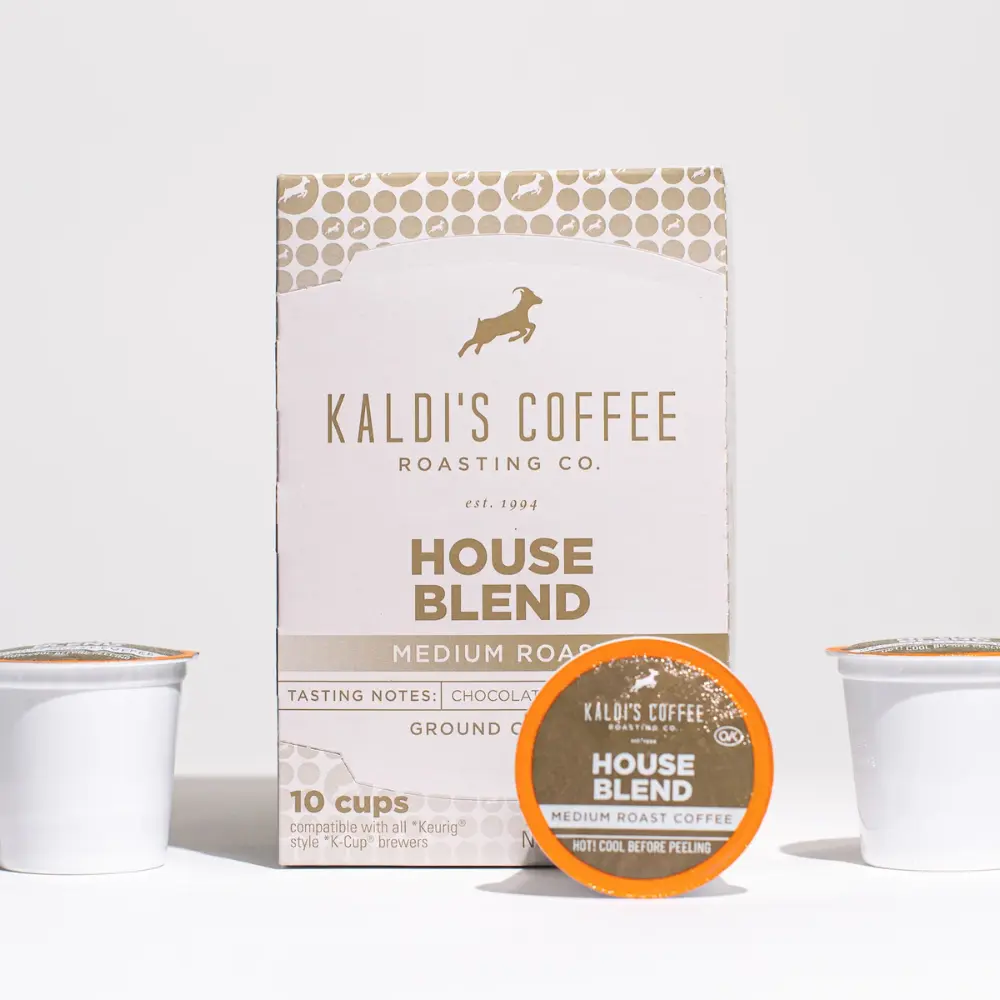
For instance, brands like Kaldi’s Coffee Roasting Co. in the United States and Kaffa Kaldi in Singapore directly reference Kaldi in their names, leveraging the historical association to build a narrative of authenticity and heritage.
| Preview | Product | |
|---|---|---|

| KALDIS Organic Birds and Bees Coffee, 12 OZ | See on Amazon |

| Kaldi Caffe – Espresso Beans, case of 6-2.2lb bags | See on Amazon |

| Kaldi Caffe – Espresso Pods (150/case) | See on Amazon |
In the realm of branding and marketing, Kaldi serves as a symbol of the timeless appeal of coffee and its enduring connection to culture, community, and the human spirit. His story continues to serve as a potent reminder of coffee’s humble origins and its transformative journey from a wild berry to a global phenomenon.
Conclusion
The tale of Kaldi the goat herder is more than just an Ethiopian legend. It’s the origin story of a beverage that has shaped our world in profound ways. Kaldi’s discovery of coffee, whether fact or fable, represents a seminal moment in human history, the ripple effects of which continue to be felt to this day.
From the traditional coffee ceremonies of Ethiopia to the bustling coffee shops of modern cities, from the intellectual debates of ‘penny universities’ to the advancements in economic systems, coffee has left an indelible mark on our societies, cultures, and lives.
In today’s coffee industry, Kaldi’s legacy is still very much alive. It’s in the rituals and festivals that celebrate coffee’s rich heritage, in the craft and expertise of our baristas, and in the branding narratives that connect us to coffee’s humble origins. And it’s in each cup of coffee that we enjoy, a simple pleasure that links us to a centuries-old tradition and a global community of coffee lovers.
As we look to the future of coffee—with its exciting innovations, its focus on sustainability and ethics, and its continued role as a catalyst for connection and creativity—we do so with a nod to Kaldi, the humble goat herder who started it all. His story is a testament to the power of curiosity and discovery, and a reminder of the extraordinary potential hidden within ordinary moments. So, the next time you sip your coffee, spare a thought for Kaldi and his dancing goats and savor the rich tapestry of history, culture, and tradition in your cup.
FAQ
How did coffee spread from Ethiopia to the rest of the world?
Coffee spread from Ethiopia to Yemen, where it was first cultivated and brewed. The beverage gained popularity in the Islamic world before reaching Europe in the 17th century. From there, it was taken to the New World by explorers and settlers, eventually becoming a global commodity.
What is the socio-cultural impact of coffee?
Coffee has had a profound socio-cultural impact, serving as a central element in various social rituals and ceremonies. It has played a significant role in fostering community and intellectual discussion, influenced art and literature, and even shaped economic systems.
How has coffee culture evolved from the time of Kaldi to the present day?
Coffee culture has evolved dramatically since Kaldi's time. What started as a simple energizing beverage has transformed into a complex world of specialty coffee, artisanal practices, and sophisticated brewing methods. Today's coffee culture emphasizes quality, craftsmanship, ethical sourcing, and sustainability.
What role does the legend of Kaldi play in today's coffee industry?
The legend of Kaldi serves as a symbol of coffee's origins and authenticity in today's coffee industry. It's celebrated in various ways, from coffee festivals to branding strategies, reminding us of coffee's humble beginnings and the journey it has taken from a wild berry to a global phenomenon.













